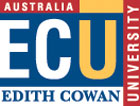Bachelor of Health Science
Bachelor of Health Science
Health Science is broad, but essentially, it’s all about enhancing the health of communities. That includes tackling a range of health-related societal problems, such as obesity, harmful alcohol and drug use and even dealing with a global pandemic! In this degree, you’ll study the core concepts of public health and…
Categories
COURSE DESCRIPTION
Health Science is broad, but essentially, it’s all about enhancing the health of communities. That includes tackling a range of health-related societal problems, such as obesity, harmful alcohol and drug use and even dealing with a global pandemic!
In this degree, you’ll study the core concepts of public health and access tools that will prepare you for the real world. Studying Health Science at ECU will give you skills to not only assess and monitor health situations, but you’ll also learn intervention strategies so you can make a difference to the lives and health of others. You’ll also gain valuable industry experience through a work placement in your final year.
And because you have a choice of one or more major subjects in this degree, you’ll learn specific skills in an area that interests you. The Bachelor of Health Science gives you a choice of six majors – Addiction Studies, Health Promotion, Nutrition, Nutrition Bioscience, Occupational and Environmental Health and Safety, and Occupational Safety and Health.
You’ll be surprised how many diverse workplaces have career opportunities for our Health Science graduates.
Majors you can study in this course
One or more of the majors in this course is externally recognised when studied within this course.
Addiction Studies
Health Promotion
Nutrition
Nutrition Bioscience
Occupational and Environmental Health and Safety
Occupational Safety and Health
Course learning outcomes
Apply broad discipline knowledge to a range of theoretical and practical Health Science situations.
Think critically to analyse, interpret and conceptualise complex Health Science problems.
Think creatively to anticipate challenges and generate discipline specific solutions/responses.
Use digital technologies and literacies to access, evaluate and synthesise relevant information from multiple sources.
Communicate disciplinary knowledge and values in professional and public contexts.
Demonstrate a global outlook with respect for cultural diversity, including Aboriginal and Torres Strait Islander cultural competence.
Work collaboratively and demonstrate initiative to implement social, sustainable, and ethical values.
Demonstrate autonomy, accountability and judgement for own learning and professional practice.
Career Opportunities
Employment opportunities exist within a range of workplaces including aged care facilities and hospitals, rural and regional settings, asthma/diabetes/cancer/injury prevention councils, heart foundations, family planning associations, alcohol and other drug agencies, mining, oil and gas industries, community development and local government organisations, disability services, justice and correctional agencies, research institutes, international aid organisations, and mental health support agencies.
Possible future job titles
Community Health Officer, Environmental Health Officer, Youth Worker, Child Health Officer, Health Promotion Officer, Health Worker, Nutritionist, Health Promotion Nutritionist, Occupational Safety and Health Management Officer, Occupational Hygiene Technician
REQUIREMENTS
There are various ways to meet our admission requirements, such as:
Secondary school results
Successful completion of one year of tertiary study from a recognised institution
Completed Diploma program from a recognised institution
English competency requirements:
IELTS Academic: An overall band minimum score of 6.0, with no individual band less than 6.0. (Results are typically valid for 2 years and online tests are not acceptable.)
TOEFL iBT: 70 (no individual score less than 17)
TOEFL Paper-Based Test (PBT): Minimum score of 550, including Test of Written English of 5 or better. (Results are typically valid for only 2 years.)
Pearson Test of English (PTE) Academic: 52, with no scores less than 50. (Results are typically valid for only two years.)
EDUCATIONAL INSTITUTION
Edith Cowan University (ECU) is a large, multi-campus institution serving communities in Western Australia and internationally.ECU was awarded university status in 1991, but despite its relative youth, the University has a proud history of more than a century of service to education in Western Australia and is recognised for its teaching and learning, excellence in research, and partnerships with the community.We have more than 23,300 students, including around 18,500 undergraduates and 4,800 postgraduates. Approximately 3,600 international students attend the University, originating from 104 countries.We are a progressive University with courses developed through ongoing industry input, and employing lecturers who engage fully with their students. We’re a university that knows while knowledge is important, understanding comes from experience –experience that enables you to adapt what you’ve learned to whatever opportunities come your way. Because that’s when you do more than just survive in this world. You thrive in it.




